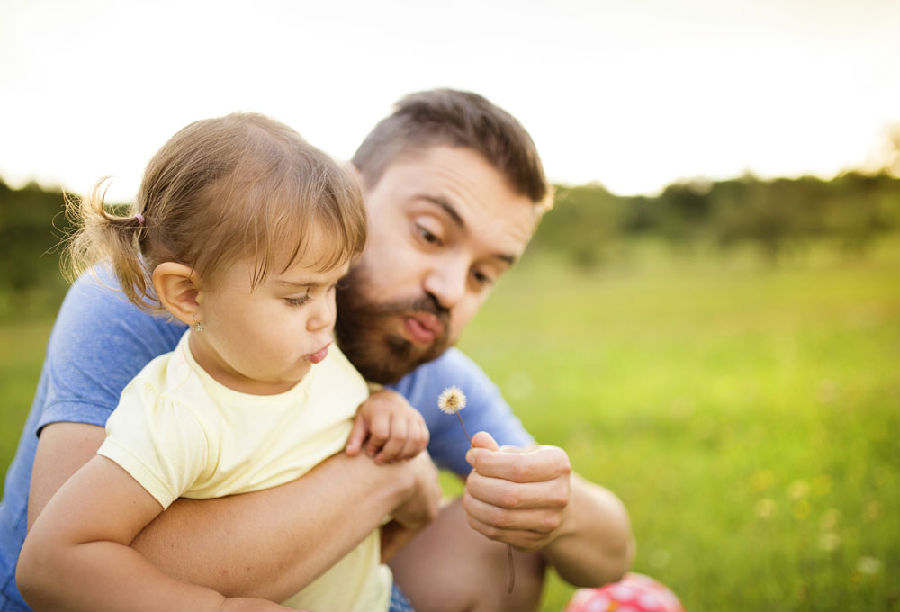“No,no,he' d say, "I was just waiting for you."
“不,不累,”他總說,“我只是在等你。”
Then we'd lock up the house and go to bed.
然后,我們便各自關(guān)上房門,上床睡覺了。
My father waited up for me all through my high school and college years while I danced my way out of his life.
在我上高中和大學(xué)的幾年里,每次我出去跳舞,父親都會(huì)一直等我回家。

Shortly after my first child was born, my mother called to tell me my father was ill.
在我的第一個(gè)孩子出生不久的一個(gè)晚上,母親打電話告訴我說父親病了:
“A heart problem,” she said. “Now, don't come. Three hundred miles. It would upset your father. a proper diet would restore him to good health. ”
“是心臟的問題。現(xiàn)在不要過來,三百英里太遠(yuǎn)了,你父親會(huì)生氣的。合理的飲食會(huì)使他恢復(fù)健康。”
My mother wrote that they had joined a dance club. The doctor says it's good excercise.“You remember how your father loves to dance.”
母親寫信說他們參加了一個(gè)舞蹈俱樂部。醫(yī)生說跳舞是很好的健身運(yùn)動(dòng)。“你還記得你父親多么喜歡跳舞嗎?”
Yes, I remember. My eyes filled up with remembering.
是的,我記得。我的眼中充滿了對(duì)過去的回憶。
When my father retired, we mended our way back together again; hugs and kisses were common when we visited each other.
父親退休之后,我們又聚在了一起。每次見面,我們都要相互擁抱,親吻。
He danced with the grandchildren; but he did not ask me to dance.
他和外孫女們跳舞。但是父親從未讓我陪他跳舞。
I knew he was waiting for an apology from me, and I could never find the right words.
我知道父親在等我的道歉,而我總是很難找到恰當(dāng)?shù)恼Z言。
As my parents'fiftieth anniversary approached, my brothers and I met to plan the party.
而隨著父母結(jié)婚五十周年紀(jì)念日的到來,我的兄弟和我計(jì)劃為他們舉辦一次舞會(huì)。
My older brother said, “Do you remember that night you wouldn't dance with him? Boy, was he mad!
我哥哥說:“還記得你拒絕陪他跳舞的那個(gè)晚上嗎?天哪,他簡直瘋了。
I couldn't believe he'd get so mad about a thing like that. I'll bet you haven't danced with him since.” I did not tell him he was right.
真不敢相信他為了此事竟如此傷心。從那以后,你肯定沒和他跳過舞吧。” 我沒有回答,但他說得沒錯(cuò)。
My younger brother promised to get the band.
弟弟說他能夠搞定一支樂隊(duì)。
“Make sure they can play waltzes and polkas,” I told him.
我告訴他:“一定要保證他們能夠演奏華爾茲和波爾卡舞曲。”
I did not tell him that all I wanted to do was dance once more with my father.
我沒有告訴他,我只是想和父親再跳一次舞。
When the band began to play after dinner, my parents took the floor. They glided around the room, inviting the others to join them.
晚餐過后,樂隊(duì)開始演奏,父母步入了舞池。他們?cè)诜块g里翩翩起舞,并邀請(qǐng)其他人加入。
The guests rose to their feet, applauding the golden couple. My father danced with his granddaughters and then the band began to play the “Beer Barrel Polka.”
客人們都站起來,一齊為這對(duì)金婚夫婦喝彩。父親開始和他的外孫女跳舞,樂隊(duì)演奏起了“Beer Barrel Polka”。
“Roll out the barrel,” I heard my father sing. Then I knew it was time.
我聽見父親在唱:“Roll out the barrel”。我知道現(xiàn)在是最佳時(shí)機(jī)。
I wound my way through a few couples and tapped my daughter on the shoulder.
我穿過人群,拍了拍女兒的肩膀。
"Excuse me,”I said,looking directly into my father's eyes and almost choking on my words, "but I believe this is my dance.”
“對(duì)不起。”我直視父親的眼睛,幾乎說不出話來,“我想該輪到我了.”
My father stood rooted to the spot. Our eyes met and traveled back to that night when I was fifteen.
父親呆了一樣站在那里。我們都注視這對(duì)方,思緒飛回到我十五歲的那個(gè)夜晚。
In a trembling voice, I sang, “Let's get those blues on the run.”
我用略帶顫抖的聲音唱道:“Let's get those blues on the run。”
My father bowed and said, “Oh, yes. I've been waiting for you.”
父親鞠躬道:“噢,當(dāng)然。我一直在等你。”
Then he started to laugh, and we moved into each other's arms, pausing for a moment so we could catch once more the rhythm of the dance.
說完,他大笑起來。我們挽著彼此的胳膊,停了一下,以便跟上舞曲的節(jié)奏。



